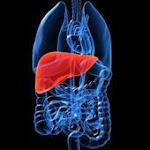Get A Job – Get A Life! (Hepatitis C / Liver Transplant (Hep C) HCV Blog)
Thursday, 30 December 2010
For what seems like forever, I have been saying “Once I’m better, I’ll be able to…”! What? Get back to normal? Carry on like nothing ever happened? Put it all behind me?
Well, the first two of those (get back to normal & carry on like nothing ever happened!!!) will never happen. It’s not that I’ve let the genie out of the bottle and it doesn’t want to go back in, you understand. But more like some weird ‘TV soap plot’ that I could never have imagined would ever happen in real life, was unleashed on me & my family.
I can remember (way back when…) having to endure an episode of ‘Eastenders’ that Mandy had been watching. Some particular piece of torrid drama unfurled on one unfortunate character and I said “Why does that always happen on these types of programme? Anyone who ever seems to be doing well gets hit by some kind of personal tragedy. It’s so pessimistic and depressing (& predictable!). It doesn’t always have to happen like that and it certainly doesn’t in real life!” – WRONG!
Okay, so it happens! And it happened to me. Yes, I’ve still got the virus, and yes, some days I feel like crap. But I did for many years prior to my transplant without even realising it. And once I did I kept on working up until about four or five months before my transplant. I was working fifteen hour days with an hour or so travel time either side, to and from work, for six days a week! That was until my employer found out I had HepC and that I had not declared it! I was suspended from work immediately. After all sorts of inquiries and tribunals I was told I was allowed to return to work but under a final written warning! “Erm, let me think about that for a moment, er, thanks but no thanks. Don’t call me, I’ll call you!”
But now I need to get to my third point “Once I’m better… I’ll put it all behind me!” Okay, so I’m not completely better but I need to move forward with my life and that is what has been ‘bothering’ me lately.
As you may have read in ‘How Do I Define Myself?’ that for me – ‘I am what I do’ so to speak. Now, more than ever, I need to go back to work.
But would you hire this man? After an ugly split with the company I sold my business to but with whom I was under contractual agreement (because of my HepC)? Bad credit history because this forced me to declare bankruptcy (because of my HepC)? Pushed out of a job by my last employer for whom I was working (because of my HepC)? Not worked for over a year (because of my HepC)? Just returning to work after a Liver Transplant (because of my HepC)? And STILL has HepC!!! Now, I was an employer for many years and I wouldn’t hire me! You get my point.
So folks, if you’ve been in this kind of situation or something like it, and I’m sure there are others like me reading this, what do you suggest? What do I say when I get asked at interview “Tell me about yourself, what have you been doing up until now”? What do I write on the ubiquitous application forms when they ask about ‘time off sick’? And do I declare my HepC? Especially when I know I’ll never get the job if I do.
The thing is, I moved on once before in my life, when things weren’t going well, as many of us have who contracted this virus - because of a ‘dubious’ past. I put it all behind me, moved on with my life etc etc. I was even making a real success of things until one day out of the blue, I got sick. I don’t want to feel like I’m going backwards. I don’t want to stand still. But I’m also scared as hell that if I do move forward it will happen all over again.
Don’t get me wrong, it’s not all ‘doom & gloom’ here. I generally have a positive outlook on life. I always said that I would use this ‘second chance’ as an opportunity to switch careers (especially as going back into catering with HCV would be difficult) and do something that I really wanted to do. The problem is, I’m not quite sure now what that is and there just aint the jobs out there that there once was. I do keep getting calls to go for interviews because my CV etc looks quite good, but it makes no mention of my HepC nor my recent’ish history. So I go to the meetings and that’s the end of that. Surely there has got to be ONE job out there somewhere…? So any help or answers right now would be real helpful.
Take care everyone…. Ian Read more...






































